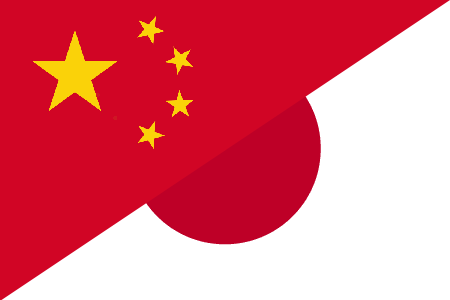Side notes to the Chinese-Japanese situation | October 1, 2013 ICRP
 As
another term begins in Japan for Abe Shinzo and his party, Chinese
leaders reaffirm their opinions on the current “borderlands issues”
affecting the country and its neighbors. China in the last few decades
adopted a way of executing military operations with the intention of
extorting political outcomes from targeted countries. This is a core
initiative in Chinese foreign policy when it is about political messages
and influence.
As
another term begins in Japan for Abe Shinzo and his party, Chinese
leaders reaffirm their opinions on the current “borderlands issues”
affecting the country and its neighbors. China in the last few decades
adopted a way of executing military operations with the intention of
extorting political outcomes from targeted countries. This is a core
initiative in Chinese foreign policy when it is about political messages
and influence.
These restricted military operations (like China’s recent joint military drill with Russia) serve as what we should call “message”. The message of China can be various as the examples show: they can be joint operations, tests (rocket launching, nuclear etc…), doubling naval patrols, regrouping military forces. The only thing that matters is that Chinese leadership is always adamant in its “demands”. As for this toughness of the demands, if we inspect them closely we can find many interesting things. For China, national interests are like a double-edged sword. Thus when the government promises something to the people, should this promise remain unfulfilled, the people of China will be somewhat restless and less cooperative, meaning that the opinion of the people counts more in China then some may expect it. So, if the Chinese government promises the people that it will defend the sovereignty and national interest of China, then they will do everything that stands in its power to fulfill its initial intentions.
Chinese “message sending methods” are however, based more on classical power demonstration techniques. Fear not, Chinese leadership has little interest in escalating these tension to the level of armed conflicts, more like it they use these tools to achieve a better position at the negotiating tables. On the other hand, it is true that there is a slight increase in these disputes from the Chinese side, mostly to force the other side to a compromise that is more acceptable for China, meanwhile it is also useful to demonstrate power to other countries and at the same time assure the population that the leaders can send a visible sign when neighbors threaten Chinese interests.
These signaling events can be very distinct. They range from the traditional “joint war-games” type to the testing of missile and anti-missile systems, satellite systems and so on. After all it is safe to say that China has a habit of emphasizing its interests through a more traditional way of messaging.
I don’t really think that we should go into deep details, this is only just a blog entry, and however, we could cite events of Chinese foreign policy that would clarify the words written above.
For example: during the 1990’s the situation of the Taiwanese independence was getting over the limit which was convenient for Mainland China, thus Chinese leadership decided to demonstrate power on a large scale in the area around Taiwan. This was a result of the previous promise to Chinese population that Mainland Chinese leadership will not tolerate any far-going Taiwanese independence efforts. Also a similar event happened or more likely still happening between China and Japan and a couple of other countries in the Asia Pacific region. The issue here is the Chinese territorial demands and adamant will to extract decisions from neighbors that are favoring the Chinese standpoint. China is in a territorial dispute with many of its neighboring countries, especially in the region of the East China Sea. In order to tip the tongs of the scale, Chinese foreign policy adapted to the current situation, thus getting involved in an increased amount of warfare exercises.
There is yet another aching point for Chinese foreign policy. Namely the recently (more of a recently accelerated) started SDF development in Japan. To make thing clear, Japan has been silently developing its formerly forbidden sovereign armed forces in the last few decades. And it is also well-known that the United Sates is backing Japan in its intentions to develop a full-scale armed force in defense of the country. As it can be seen from the other side of the Chinese Sea, Japan has been developing a self-defense force, that is more like a self-defense military and that is aimed to be a national military eventually. Japanese intentions are interpreted as such in Beijing, now that the Tokyo government hinted its plans to revise the whole constitution especially the Article IX. that is the reason why the Japanese Constitution is called a pacifist constitution.
As the clash of interests continues between Japan and China on disputes that are decades old; the rest of the World sits in silence and awaits the final results of this debate. One thing for sure is that the Chinese leadership most likely will increase the pressure on the country’s neighbors if it considers the hostility towards Chinese intensions too much.
* * *
-icrp-


